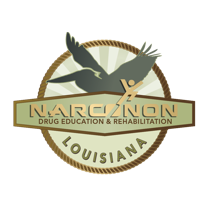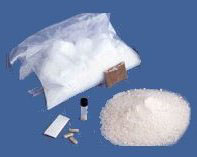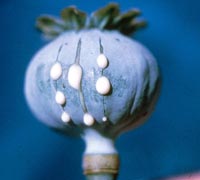Tennessee Drug Rehab Centers
Tennessee is a state of diversity, boasting the scenic beauty of the Great Smokey Mountains and the greatest diversity of birds of any state in the country.
Dubbed the ‘Volunteer State, because of the record number of volunteers the state provided during both the War of 1812 and the Mexican War.
Tennessee has a lot to be proud of and many reasons to be concerned about the addiction problems that haunt some of its citizens .
Tennessee Drug Information
Prescription Drug Abuse
Diverted pharmaceuticals pose a growing problem in Tennessee, where the state health care program is utilized by abusers to “doctor shop” without paying for medical care.
A special report prepared for the Tennessee Medical Board showed that consumption of hydromorphone, hydrocodone, meperidine, and amphetamine was above average in the state. Dilaudid and morphine are also mentioned as heavily abused drugs.
Current investigations indicate that diversion of hydrocodone products and pseudoephedrine/ephedrine continues to be a problem in Tennessee, even though the state passed and signed into law the “Meth-Free Tennessee Act of 2005” in March 2005.
This law limited the sale of the pseudoephedrine-containing products that meth cooks rely on for the production of methamphetamine, closed a loophole that allowed for personal use of methamphetamine, and required healthcare professionals to report meth lab-related burns and injuries to law enforcement. However, diversion of hydrocodone and other prescribed drugs continue to plague the state.
Tennessee ranks fourth in the nation in the sale of all hydrocodone medications. This ranking translates into substantial abuse problems and numerous criminal activities in the state.
Primary methods of diversion reported are illegal sale and distribution by health care professionals and workers, “doctor shopping” (going to a number of doctors to obtain prescriptions for a controlled pharmaceutical) through the state health care program, the Internet, and forged prescriptions.
OxyContin®, methadone, morphine, and Xanax® were identified as being among the most commonly abused and diverted pharmaceuticals in Tennessee.
Money Laundering
Drug proceeds are usually moved by commercial tractor-trailers and privately owned vehicles. These vehicles are frequently equipped with special electronically- controlled compartments. Money transfers, vehicle and real estate purchases, clothing stores, and detail shops are all part of the process of laundering money throughout the state
Source: White House Policy on Drugs
Drug Rehab Centers
Tennessee
Detoxification is only the first step on the road of drug addiction treatment. Most drug rehab centers in Tennessee consider detoxification to be when the drug addict is no longer under the influence of the drug, but this is actually only withdrawal.
At Narconon Drug Rehab, which services all of Tennessee, we have a very unique and effective detox procedure that actually rids the body of the old drug residues, which in turn eliminates physical cravings for the drugs and allows a person to feel much healthier mentally and physically.
This is called the Narconon New Life Detoxification Program and is part of Narconon Drug Rehab’s long-term treatment.
Common Drugs in Tennessee
Marijuana
Marijuana abuse and trafficking is a serious problem throughout the state, especially in rural areas.
Tennessee is a major supplier of domestically grown marijuana, although Mexican marijuana has an increasing presence.
According to the Appalachia HIDTA Threat Assessment, Tennessee is consistently ranked as being within the top ten states for marijuana plant eradication.
In certain areas of the state, marijuana is favored over other drugs of abuse by some individuals.
On the federal level over 5,000 marijuana plants were eradicated and seized in the state, however, all law enforcement seizures in the state totaled over 539, 370 plants.
Signs of Marijuana Abuse
Cocaine
Cocaine is usually transported to Tennessee in multi kilogram quantities from cities in the western United States and from Texas, Illinois, Georgia, and California. Hamilton, Davidson, and Shelby counties are considered the distribution hubs for the state.
Crack cocaine is preferred over the powdered HCL form in Tennessee. Tennessee has remained an area of choice for the illicit activities of structured Mexican drug trafficking organizations.
These structured groups respond to command and control elements in Atlanta, Los Angeles, Houston, El Paso, and Mexico. DEA investigations and other source reporting indicate that cocaine trafficking organizations are experiencing difficulty receiving cocaine from their Mexican and Latin suppliers.
The shortage of supply is attributed to the increased commitment and successes of domestic and international law enforcement and military personnel in their efforts to impede the flow of illicit drugs to and through the United States.
Consequently, increased cocaine prices have been reported across the state. Compared to last year’s seizure statistics, there has been a 5 percent increase in cocaine seizures in the state.
Signs of Cocaine Abuse
Drugs of Abuse in Tennessee
Methamphetamine
The availability and demand for methamphetamine continues to increase throughout Tennessee.
Much of the methamphetamine consumed in the state is transported from Mexico and the southwest border states. Clandestine methamphetamine labs can be found everywhere in Tennessee, but are predominantly located in the Appalachian areas in Eastern Tennessee.
The numbers of both methamphetamine clan lab seizures and methamphetamine drug seizures have increased substantially over the last year. This increase is in despite of the legislation passed in 2005 restricting the availability of precursors necessary for the processing of methamphetamine.
There were over 600 labs seized in 2008 compared to 539 in 2007 and twice the amount of math seized compared to the previous year. The labs that are discovered in Tennessee are generally characterized as small and unsophisticated.
These labs continue to pose a significant threat because lab operators are frequently armed and substantially involved in the drug’s distribution and therefore tend to place booby traps around the sites.
Mexican methamphetamine trafficking groups control much of the methamphetamine distribution in the Chattanooga area, but command and control for these Mexican organizations are frequently found in Dalton, Georgia.
An increase in methamphetamine use and abuse is anticipated in Tennessee as the drug gains popularity over crack cocaine use. This trend is attributed to the highly addictive nature of methamphetamine, particularly Ice
Signs of Methamphetamine Abuse
Heroin
Heroin use in Tennessee is limited to a very small number of long-time users.
The heroin trafficking situation has been very stable in the state for the past several years, though an increase in heroin availability and highway interdiction was reported recently.
There has been no great change in the demand for the drug indicated by other factors in Tennessee. Texas, Georgia, and New York are the main sources of Mexican black tar, Mexican brown, and Southwest Asian heroin in Tennessee.
Heroin traffickers are as diverse as with any other drug.
Signs of Heroin Abuse






